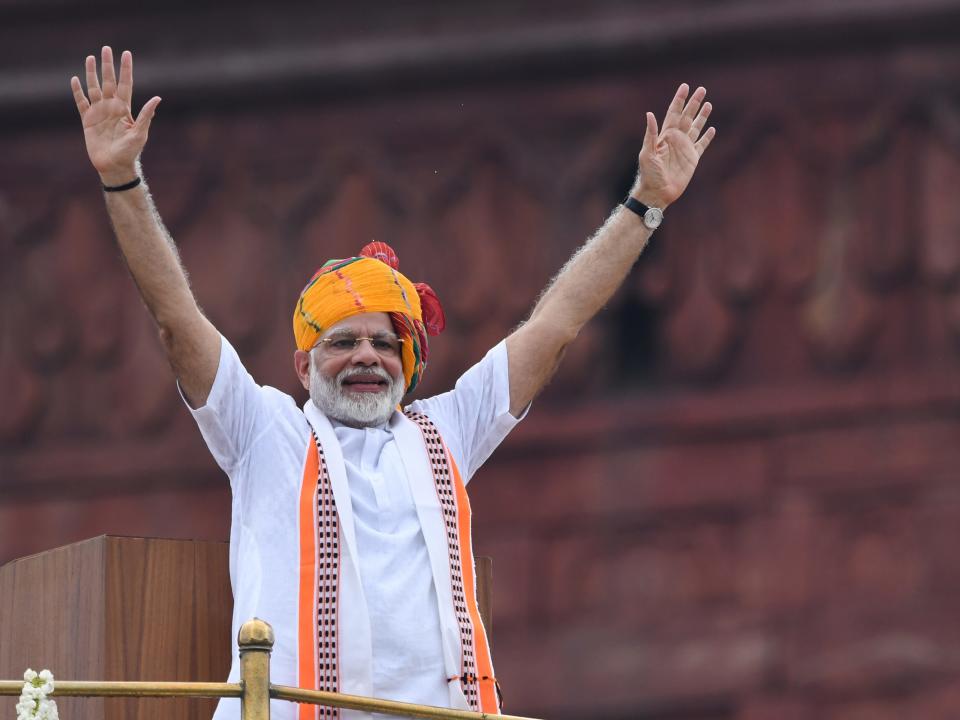It's not just China —India's now pushing a de-dollarization narrative by touting the use of the rupee for trade

India's pushing to internationalize the Indian rupee, according to a report from its central bank.
Countries globally are lining up alternative currencies for trade amid the de-dollarization discourse.
But the US dollar still accounts for almost 90% of global foreign currency transactions.
It's not just China that's trying to internationalize its national currency.
India's now at it too, as the Reserve Bank of India, or RBI, indicated in a report made public on Wednesday.
The US dollar has been the world's reserve currency since the Second World War, playing a crucial role in the world's trade and financial system.
But sweeping sanctions against Russia that expelled the country from the US dollar-dominated global financial system spooked other countries so much that they are now lining up backup currencies for trade.
"The internationalization of a currency is also closely interlinked with the nation's economic progress, especially its prominence in global trade," an RBI working group said in the report.
Although RBI said the working group's recommendations do not reflect its official position, they come a year after Prime Minister Narendra Modi's administration first started touting the greater use of the rupee globally.
In its Wednesday report, the RBI working group encouraged the opening of rupee-denominated accounts for non-residents in India and overseas. It also recommended the integration of Indian payment systems with those in other countries for cross-border transactions.
While the macro geopolitical environment is spurring countries to seek alternative currencies to trade with, there's long been uneasiness over the dollar's outsized dominance in global trade and finance.
In its report, the RBI highlighted the US needs to maintain its obligations and responsibility as the issuer of the reserve currency but, when forced to choose between its own interests and those of the rest of the world, the American government has in the past "not hesitated to protect its own interests."
This is an issue because it contributes to an imbalance in the international monetary system, which is already skewed toward the US precisely because it is the issuer of the world's dominant reserve currency, per the report.
"It, therefore, seems evident, that while the US dollar's 50-year-long dominance remains unchallenged for now, it has started to erode slowly, and the economic order will have to evolve to look beyond the US dollar in the future," the RBI working group added.
Even though there's a global trend to de-dollarize, the greenback is still by still by far the world's most dominant reserve currency, accounting for almost 90% of global foreign currency transactions, according to a 2022 survey from the Bank of International Settlements, whose members are central banks.
India, for instance, has made little headway with its push to use more rupees for trade. Just 0.01% of India's trade in goods was settled in the rupee last year, Bloomberg reported on Friday citing people familiar with the matter.
Even Russia's having problems in dealing with the rupee with India, which is now one of the biggest buyers of Russian energy. This alternative currency trade has left Moscow stuck with up to $1 billion worth of rupees each month in Indian banks which it has problems repatriating, according to Bloomberg calculations in June.
The RBI did not immediately respond to a request for comment from Insider.
Read the original article on Business Insider

 Yahoo Finance
Yahoo Finance 